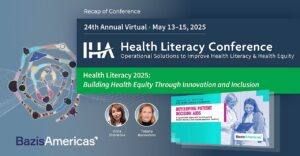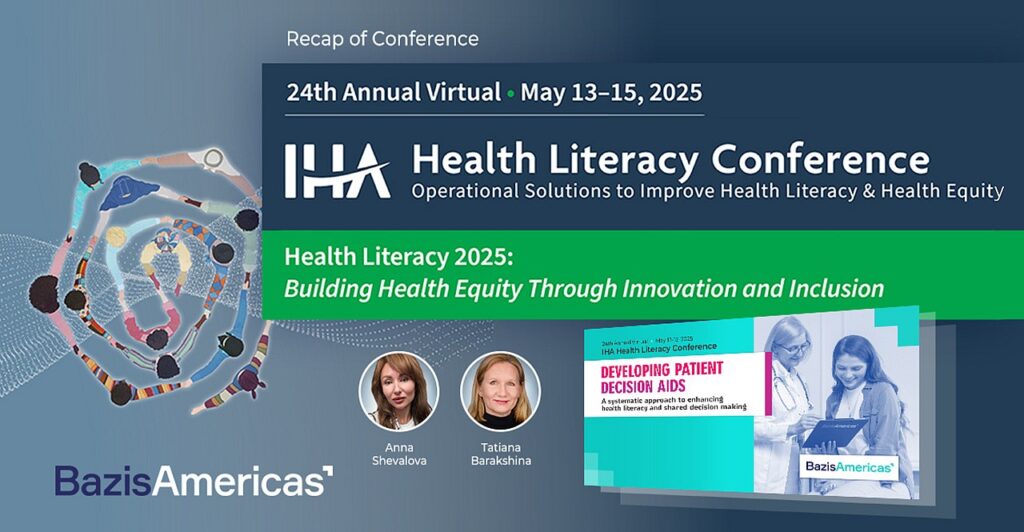
Recap of 2025 IHA Health Literacy Conference
The 2025 IHA Virtual Health Literacy Conference brought together experts from across the healthcare landscape to tackle one critical question: How do we make health information work better for patients? Anna Shevalova shares key takeaways from this engaging event.

Jessica Brooks-Woods, MPM, PHR opened the conference with her session on “Advancing Health Equity in Challenging Times.” She showed an impressive AI Doula tool designed to support women through pregnancy – a great example of making healthcare more accessible through technology. Her no-nonsense approach to navigating policy barriers while maintaining effective health literacy initiatives resonated with attendees.
Bazis Americas contributed an on-demand session titled “Developing Patient Decision Aids: A Systematic Approach to Enhancing Health Literacy and Shared Decision Making,” presented by Anna Shevalova and Tatiana Barakshina. Patient Decision Aids are tools – printed materials or interactive digital resources – that help patients understand their treatment options, the potential benefits and risks of each choice, and how these align with their personal values. Our session focused on how these practical tools can transform complex medical information into formats patients can actually use. The session highlighted how Patient Decision Aids not only improve patient understanding but also support healthcare providers in delivering more personalized care. We discussed the development process, implementation challenges, and measurement of effectiveness – giving attendees a complete roadmap for creating Decision Aids.
In “Advancing Organizational Health Literacy in Public Health,” Dr. Darcie Moeller and Melanie Sampson presented a toolkit that guides organizations through interventions in six areas:
- Leadership & Organizational Transformation
- Health Literate Workforce Development
- Partnership & Collaboration
- Accessibility of Information & Services
- Communication Practices & Standards
- Community Engagement & Outreach
Their ready-to-use framework offers solutions any organization can adapt to improve patient communication. What stood out was how they integrated these principles across different departments and roles.
The “AI in Action” roundtable led by Tracy Mehan and Eskarlethe Juarez sparked honest conversation about AI’s role in healthcare communication. Participants shared what’s working, what isn’t, and where we go from here with these emerging tools.
This three-day virtual conference reinforced the importance of meeting patients where they are with information they can understand and use. As health communications continue to evolve with new technologies and challenges, the focus remains clear: breaking down barriers between medical expertise and patient understanding. At Bazis Americas, we’re proud to be part of this important work.



